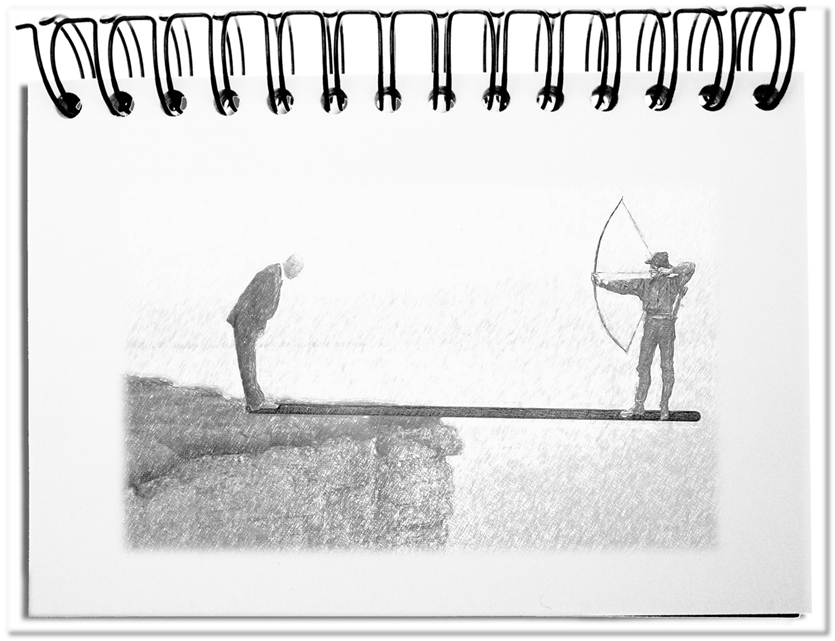Most of our working time, we take care of routine tasks that need to be done and are not a challenge or a fun factor. Since they are neither difficult nor particularly complex, they are decided and processed on the side without eagerness. Somebody purchases USB sticks for the employees, who quadruple the memory and only cost a fraction. Due to the cheaper Chinese manufacturer, you can save a few Euros based on the required quantity. That afterwards employees regularly lose their data or are not able to connect the stick, that because of that customer conversations fail, that as a result important contracts do not materialize and therefore eventually the company’s turnover slumps dramatically, is incommensurate with the 1250 Euros saved. It’s the old story that short-sighted savings can destroy the basis for business success – just like the supervisor, who shoots a staff member, although the employee is the reason for his own position.
Decisions usually do not only produce the desired results, but you also pay for it with unintended consequences. The reasons for this are manifold.
- Blindness
In extreme cases one cannot imagine consequences at all – neither the wanted nor the unwanted. This results from a context-free consideration of a decision: Do I choose solution A or solution B? Since there is an interest behind a decision, it is easy to forget that there can also be consequences which subsequently burden the result.
For this reason, when a decision is taken you should not only ask what you enable with one alternative or the other, but also whether there are unwanted consequences that you do not want to suffer from under no circumstances. - Simplification
The trivialization of a decision-making is the unintended creation of the aforementioned blindness of the unwanted effects. This happens by oversimplifying the influencing variables through generalizations, stereotypes and ambiguities so that the findings become arbitrary. Although this popularization makes the decisions more comprehensible, it does not improve the decision.
For this reason, decisions should not be trivialized. There is no guarantee that the forecasts made will come true. However, predictions improve when the decision parameters are adequately considered. - Ignorance
A further variant that leads to a form of blindness is the lack of understanding caused by too little or too much information. How is one supposed to make a reasonable decision, if one does not sufficiently know the circumstances? The butterfly effect has taught us that you can never know enough to make a reliable prediction. However, that does not mean that you should forego more clarity to be able to make better decisions.
For this reason one should always question the own view. Is the important information available? Is my view consistent? Do I understand everything? Since you can never understand everything, there always remains a residual risk that decreases with more clarity. - Acceleration
Unpleasant decisions are often rushed. You act with the attitude: If you don’t know what the outcomes are going to be, you should at least make the decision quickly. And this, although this form of hurry results in more unintended consequences.
For this reason, ANY decision should have an appropriate timeframe. In business, there are rarely matters of life and death that should be decided in seconds. Common sense suggests that you should sleep on every decision – in order to come to a better conclusion during the nightly batch processing. - Bias
Opportunities that require a decision are burdened with unconscious distortions of perception, remembrance, thinking, and judgment. These filters are called cognitive distortion or bias. An example is groupthink, in which an individual is influenced by the opinion of the group that leads to making worse decisions than one would make without the group. Another example is the control illusion that tells you that you can control random influences.
For this reason, a decision should be objectified, for example by taking the neutral positions or those of other people and by creating a Pro-Con list from their different points of view.
Bottom line: Decisions do not only contain desired outcomes, but also consequences, which may have little to do with the result, but can be very harmful. One should ensure that shehe sees the (un)wanted consequences, does not draw conclusions by exaggerated simplification, knows more through adequate information, thinks everything through with sufficient time and avoids distortions of perception, remembering, thinking and judging, in order to not suffer from unintended consequences.

